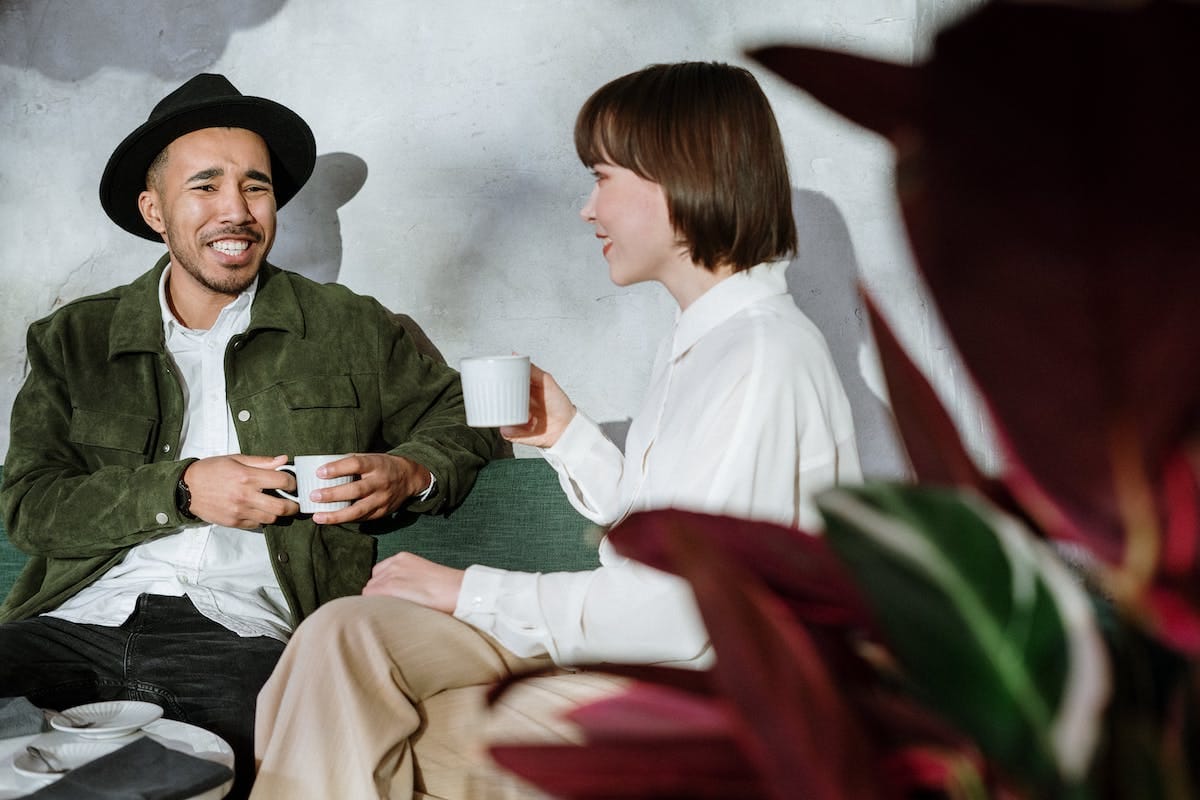Why the relationship trend that’s about taking a casual approach to dating could be just what you’re looking for
Fall in love. Get married. Have a family. That’s the relationship roadmap that many of us were given growing up, and finding ‘the one’ is often positioned as the heart of a happy life. And while many people do find joy in traditional, long-term relationships, that level of commitment isn’t necessarily for every romantic relationship you have in your life.
What’s a situationship?
Let’s start by acknowledging that the term ‘situationship’ is just another label that tries to squeeze complex, nuanced, and evolving relationships into a box – and that’s not always helpful. Coined in 2017 by writer Carina Hsieh, the term situationship describes a relationship that involves hooking up with an emotional connection. Think a bit more intense than friends-with-benefits, but without the labels of something more official.
Tinder’s survey of 18 to 25-year-olds shows one in 10 prefer situationships as “a way to develop a relationship with less pressure”, and after witnessing a 49% rise in members adding situationship to their bio from January to October, the app even named it their top trend of the year in 2022.
The intentional vagueness of it all can be a little off-putting, but there are plenty of good reasons to reject the stereotypical way of dating. For you, this could be having the freedom to travel for an extended period, choosing to focus on friendships, or working passionately on your side hustle – all without worrying about the impact this might have on your relationship. For someone else, it might be the joy of exploring their sexuality without the awkwardness of a one-night stand, or a safe way to dip their toe back into the dating pool after years in a serious relationship.

Challenging societal norms
For women, especially, there may be some internalised shame involved as you pursue a relationship rooted in sexual pleasure, or one that isn’t focused on the end goal of marriage or having children. Redefining the infrastructure of your relationships can be empowering, but it can sometimes result in unwelcome comments from friends and family.
I spoke to Jay* who explained that they felt pressured to define their relationship after a friend mocked their casual approach to dating.
“My best friend is married with kids, and although I love her to bits, she kind of made me feel bad about my choices.
“I know that the healthiest thing for me right now is to take off the pressure of a committed relationship, and just enjoy an emotional connection with a casual vibe. If other people can’t understand that, then there’s likely an element of projecting their own insecurities on to you, as opposed to actually wanting what’s best for you.”
No pressure
“I know situationships get a bad reputation, but if you want intimacy without something serious, and also want more connection than a one-night stand, I’m all for them,” says Kristen* (@datingmyselfinmy40s on TikTok) who recently had a successful situationship after experiencing an emotionally messy divorce.
“He was a great ‘not boyfriend’, getting me thoughtful gifts every now and again, coming over to do bits of DIY when I needed help, and eventually encouraging me to get back on the apps, and start pursuing something more serious.”
For Kristen, it was a no-pressure way to get back into dating, and figure out what she wanted from her love life. “In the end, the physical attraction between us faded, but he’s become a really good friend, and someone I hope will be in my life for a long time to come!”
Communication is key
So how can you make a situationship work for you? Unsurprisingly, opening up the conversation is essential. Discuss your expectations, and ask for their perspective. With every relationship, there may be an element of compromise, but you should honour your own emotional needs, too. As long as you’re both emotionally aware, and OK with that type of relationship, it can work well.

Seek a healthy balance
Relationships change and develop over time, so make time to check in with yourself and the other person regularly. Counsellor Georgina Sturmer says it’s particularly important to notice if one party is more driven to maintain a situationship than the other.
“Maybe you’re pushing for the situationship, and subconsciously there’s a part of you that knows that the other party would prefer a different style of attachment. Or maybe you’re the one who is compromising on your preferences in order to keep the momentum with the other person. If this is the case, ask yourself whether the situationship is really meeting your needs right now.”
Protect your self-esteem
Be aware of how the situationship is affecting your self-image. Is the lack of commitment making you feel unworthy or unattractive? Or is the opposite true; perhaps the freedom to live an independent life is actually boosting your confidence, and having a positive impact on other areas of your life. Be honest with yourself and what you want from a relationship, and whether the person you’re with can deliver, or if the current setup is triggering feelings of insecurity.
Zoom out and look at your life
Because a situationship contradicts what a relationship is ‘supposed’ to look like, deciding whether you can handle one is a tricky decision to make. Laura Wasser, chief of divorce evolution at divorce.com suggests thinking about your love life in a more cinematic way to get a clearer picture.
“I would gently suggest that you immerse yourself in the narrative of your situationship, just like a character in a novel,” she says. “Are you thriving, growing, and finding joy in the chapters unfolding? Or do you find yourself shrinking, perhaps losing a bit of that sparkle that makes you uniquely you?
“So, as you sit with your feelings, perhaps ask yourself this: is this situationship adding vibrant colours to your canvas, or is it muddying the waters, making it difficult to see the beautiful picture you’re meant to paint?”
Ultimately, uncovering whether a situationship fits your needs is entirely based on your circumstances and emotional needs. But challenging yourself to dig deeper into those needs – through self-reflection, alone time, and if needs be, talking to a therapist – will result in a more fulfilling life, either with or without a partner.
*Names have been changed.


Comments